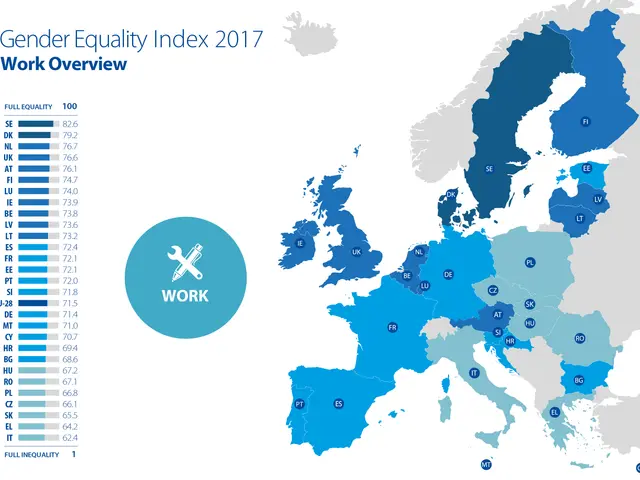Potential Impact of Croatia's New Foreigner Regulation on Commercial Ventures
Headline: The Croatian Law on Foreigners: A Challenge for Businesses in Tourism and Construction
The Voice of Entrepreneurs Association (UGP) has raised concerns about the new Croatian Law on Foreigners, claiming it's stifling businesses, particularly micro and small companies in the tourism and construction sectors.
According to the UGP, the primary issues lie with the lengthy process of issuing permits for foreign workers and the rigid minimum turnover requirement of 10,000 euros. These challenges have led to delayed applications, rejections, and prolonged uncertainty for businesses.
The UGP questions the applicability of these regulations, especially for seasonal businesses like construction and tourism. For instance, a construction company might generate substantial revenue in certain months but fall short of the minimum turnover due to seasonal fluctuations. Similarly, entities in the tourism industry may generate little to no turnover during the off-season, then face reproach for irregular income during peak season.
The UGP has been vocal about the harms this law poses, emphasizing potential threats to the livelihoods of thousands of families reliant on these sectors. They have proposed solutions such as:
Email: *
- Reallocation of Personnel: Enhancing the Ministry of the Interior's capacity to expedite the work permit process.
- Rationalization of Procedures: Streamlining the permit issuing process and limiting it to a maximum of 30 days from the submission of proper documentation.
- Adjustment of Turnover Criteria: Tailoring turnover requirements to consider the seasonality of tourism and construction.
Boris Podobnik, president of the UGP, urged Minister Davor Božinović and relevant institutions to address these concerns urgently. He emphasized the need for the Croatian Law on Foreigners to adapt to the realities of the business sector, particularly the tourism and construction industries, and for the system for issuing work permits to be reorganized and sped up.
First name:
In summary, the UGP believes that the inadequate legal solutions and inefficiency within the Ministry of the Interior could leave Croatian companies without necessary labor and place their businesses in jeopardy. They urge policymakers to protect these industries and their workforce by adjusting the Croatian Law on Foreigners to better align with the realities of the business landscape.
Are you a business owner struggling with regulation issues? Share your story with us by subscribing to our newsletter. Certainly, we'll keep you updated on the latest developments.
Last name:
Citations:
Gender:
- "Croatian Law on Foreigners: A Threat to Micro and Small Businesses?" (Poslovni Dnevnik, May 3, 2025)
Male Female
Related posts:
Country:
- Taxi Ranks at Pile to be Removed!
- White Book 2024: Croatia Must Enter Elite Group Of 25 Most Attractive Investment Destinations By End Of Decade
- A Look at Predictions for The Croatian Economy in 2025
- Trump Tariffs May Result in Layoffs for Croatian Company HS Produkt
Birthday:
Sign up for our newsletter!
Email: *First name:Last name:Gender: Male FemaleCountry:Birthday:
- The UGP suggests reallocating personnel within the Ministry of the Interior to expedite the work permit process for foreign workers, aiming to reduce inefficiencies and Prolonged delays.
- To support growth in the Croatian tourism and construction industries, the UGP proposes rationalizing permit issuing procedures, limiting the processing time to a maximum of 30 days after proper documentation is submitted.
- In light of seasonal fluctuations, the UGP advises adjusting turnover requirements for work permits to better accommodate the tourism and construction sectors' unique business models.
- The UGP emphasizes that the inadequacies in the current Croatian Law on Foreigners pose a significant threat to businesses, particularly those in the tourism and construction sectors, and emphasizes the need for policymakers to protect these industries by improving the law and streamlining the work permit process.






